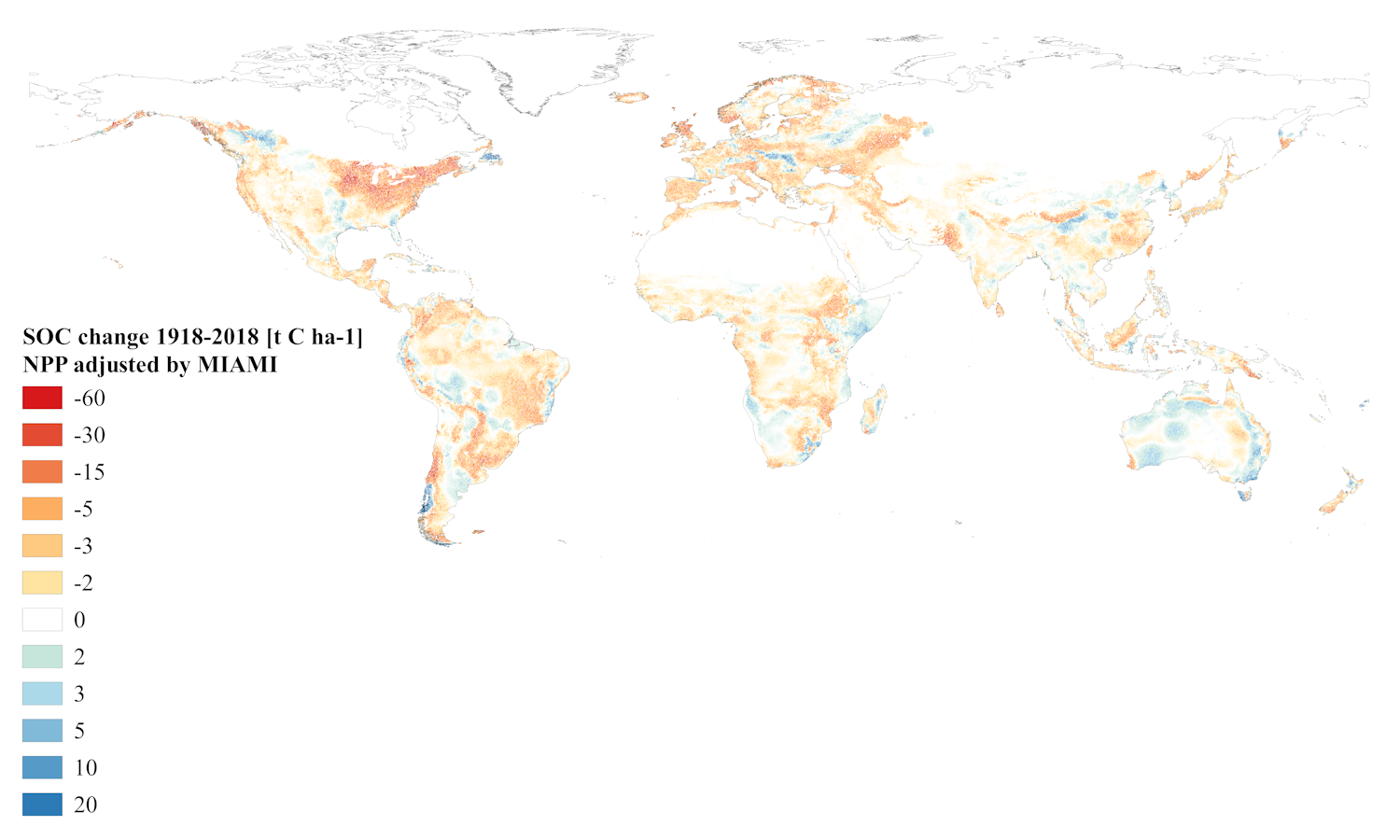Regionalization, Modelling, Data Science
From points to areas: regionalizing climate change mitigation measures and making forecasts
Contact: Rene Dechow and Florian Schneider
We are a team dedicated to the modelling, regionalization and model-based analysis of greenhouse gas emissions (e.g. N2O, CO2) from agricultural soils. We investigate and evaluate the influences of management, land use and climate change on emissions and upscale possible climate change mitigation measures through soil organic carbon sequestration and changed nitrogen management. Our aim is to use models to explicitly predict temporal trends in soil carbon stocks and greenhouse gas emissions from agricultural soils. Our predictions contribute to the evaluation of climate change mitigation measures in the agroecosystems of Germany, Europe and worldwide.

Our approaches
Process-based approach. Based on new findings from the labs of our institute, we are further developing existing process-based models in order to better quantify carbon and nitrogen fluxes in agroecosystems and map scenarios. For example, we are currently working on the integration of dynamic soil carbon models into the national greenhouse gas emission reporting under UNFCCC.
Data-driven research. We use the constantly growing amount of environmental data to derive new findings for our research. To this end, we combine various self-collected data, such as that from the German Agricultural Soil Inventory (BZE-LW), with climate and management data in order to train machine learning algorithms and derive forecasts.
Hybrid methods. Sometimes our research questions require a combination of process-based models and data-driven analysis methods. We rely on hybrid approaches to solve the complex issues in the best possible way and to continuously develop this approach further.

![[Translate to English:] [Translate to English:]](/media/_processed_/6/4/csm_titel_CO2Kampagne8_afeea2273e.png)
![[Translate to English:] [Translate to English:]](/media/_processed_/4/1/csm_titel_93px_CO2Kampagne8_9b0f3354d4.png)




